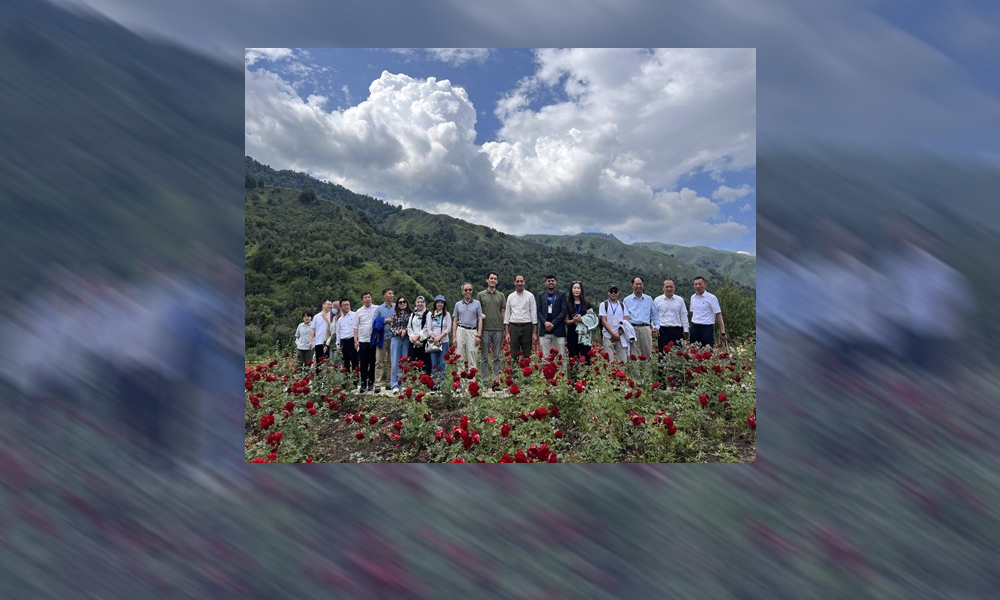By Amarjargal Dagvadorj (Breathe Mongolia- Clean Air Coalition, Mongolia) and Muhammad Qasim (Cytotech, New Zealand)
The 2023 International Young Scientists Forum on Ecology and Resource Sustainable Development of Silk Road, held in Xinjiang, China, featured contributions from several GYA members, who presented their research and expertise during the event. The Silk Road Science Forum, which hosted more than 320 participants from 35 countries, aimed to address ecological challenges and foster regional cooperation by showcasing a shared commitment to sustainable development.
For a complete overview see the report “GYA members promote regional bonds at Silk Road Science Forum in China“.
Overall, the Silk Road Science Forum served as a catalyst for collaboration, knowledge sharing, and forging regional bonds among GYA members dedicated to sustainable development and their invaluable contributions to the scientific community.
On the Forum’s pentultimate day, participants had the opportunity to explore the fascinating Shanshan Xinjiang Megalosaurus Fossil Excavation Site and Museum. The site showcases a diverse collection of fossils, including the remains of the magnificent Megalosaurus. Participants had the opportunity to witness these fossils up close, gaining a deeper understanding of the paleontological world.
As a highlight of the Forum, participants visited the renowned Turpan Eremophyte Botanical Garden. Located in Turpan, Xinjiang, this unique botanical garden displays a diverse collection of arid-adapted plants, offering valuable insights into the region’s ecological resilience.
On the last day of the Forum, selected participants had the opportunity to visit the beautiful Gongnaisi meadow-like grassland of Ili Xinyuan County of Xinjiang and Ili-Turpan National Botanical Garden of Xinyuan County of Xinjiang.
The participants were received at the airport by the Member Standing Committee of China’s Communist Party, represented by Mr Zhonghe, Deputy County Chief of Xinyuan County, Mr Liu Hua, and officials of the Communist Party of Xinyuan County.
A briefing about the ecological site of Xinyuan County was arranged for all participants. The director of the lily botanical garden, Prof Dr Guan Kiayan, and the Assistant Director of Botanical Garden, Mr Huilang Liu, led the participants to the ecological site.
In the last 10 years, the botanical garden has restored 100,000 acres of land with different varieties of wild apples and peaches. The botanical garden has four plant conservation regions, wild fruit plant varieties, ornamental plants, medicinal plants, and international plant species.
The visit to the grasslands of Xinyuan County was mesmerizing. The local government has established a wonderful infrastructure in the region to make it tourist-friendly.
The area is specially preserved for farming sheep, cattle, and horses. Xinyuan County is rich in natural resources, and contains 928,300 mu of arable land (“mu” is a Chinese unit of area that is equivalent to about 0.066 hectares), 761,6600 mu of high-quality natural pasture, a forest area of 1,705,700 mu, proven mining value of iron, coal, gold, copper, and more than 20 kinds of minerals. Xinyuan County has 2 state-level of agriculture science and technology bases for fruits and Akkerka edible mushroom growth, research, and training bases.
In the last session of the visit, all senior county administrations had a round table discussion with Forum participants to discuss future collaborations, and projects to increase the economic benefits of agricultural products, improve infrastructure and make Xinyan country an international tourist attraction.

